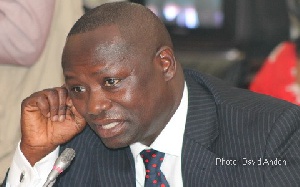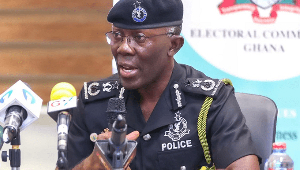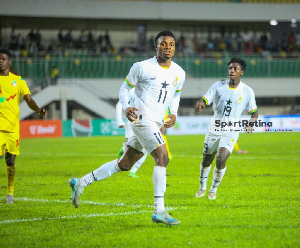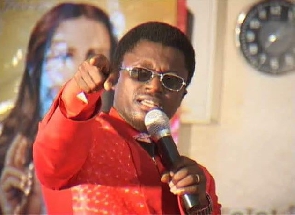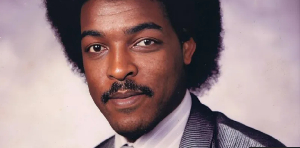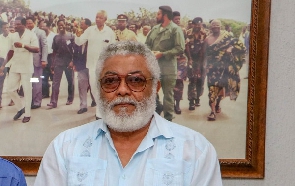The Energy Commission says the country can achieve sustainable energy for all by the year 2020; ten years earlier than the UN Secretary General’s target for achieving universal access to modern energy services, doubling the global rate of improvement in energy efficiency and doubling the share of renewable energy in the global energy mix.
Ghana in November 2012 became the first country in the world to launch its National Action Plan for achieving the set objectives under the UN Sustainable Energy for All initiative.
Already, in Africa Ghana is only behind Mauritius, South Africa and Cape Verde in terms of access to electricity. The national electricity coverage, according to the Energy Ministry, has moved from 15% in 1990 to 72% as at December 2012.
Whilst access to electricity in Ghana is considered significant, efficiency levels are low in view of the frequent power outages. A lot remains to be done in terms of access to other modern energy services, especially in the area of cooking. The use of Liquefied Petroleum Gas (LPG) in Ghanaian homes, says the Energy Ministry, has moved from 0.8% in 1989 to 18% in 2010.
Wood fuel remains the dominant source of cooking fuel. About 66000 Ghanaians die annually as a result of exposure to unhealthy cookstoves, said Radha Muthiah, Executive Director of the Global Alliance for Clean Cookstoves at the launch of Ghana’s National Action Plan in November 2012.
The share of renewable energy in the country’s energy mix is also considered low, even as government intends increasing its penetration to 10% by 2020.
But the UN has hailed the country’s energy strategy, saying that: “The energy objectives established by Ghana represent an important example of country-led action that will advance the objectives of Sustainable Energy for All."
Ghana's energy strategy sets a goal of renewable energy constituting 10 percent of national energy generation by 2020. To reach this goal, Parliament passed the Renewable Energy Act, providing the legal and regulatory framework necessary for enhancing and expanding the country's renewable energy sector.
The country is also promoting the use of LPG, which is a cleaner fuel than firewood and charcoal.
“Government is committed to increasing the penetration of LPG from its current level to 50% by 2020 ahead of the UN Sustainable Energy for All,” a speech read for the Energy Minister at the launch of the National Action Plan said.
Also, to improve the national electric grid, the country is implementing a National Electrification Scheme to provide universal access to electricity by the year 2020. Since its enactment in 1989, more than 4,000 communities have been delivered power, and more than 67% of the population has been delivered electricity -- up from 25% in 1989.
“We are making history. This is the first country in the world to launch its plan. But history comes with challenges. Let’s all put hands on deck for Ghana to consolidate its position as the number-one country in the Sustainable Energy for All initiative,” said Prof. Abeeku Brew-Hammond, Board Chairman of the Energy Commission.
To support’s Ghana’s efforts, the Global Alliance for Clean Cookstoves has chosen Ghana as the first of six countries to help achieve clean and efficient household cooking solutions. The alliance, which is a public-private partnership led by the UN Foundation, says it has set aside US$2million to support entrepreneurs in the cleaner fuels sector.
The UN says that without access to modern energy it is not possible to achieve the Millennium Development Goals; whether reducing poverty, improving women's and children's health or broadening the reach of education.
“Electricity enables children to study after dark. It enables water to be pumped for crops, and foods and medicines to be refrigerated. Modern fuels for cooking and heating relieve women from the time-consuming drudgery and danger of travelling long distances to gather wood.”
The United Nations General Assembly declared 2012 the International Year of Sustainable Energy for All, recognising that “…access to modern affordable energy services in developing countries is essential for achievement of internationally-agreed development goals, including the Millennium Development Goals and sustainable development, which would help to reduce poverty and improve the condition and standard of living for the majority of the world’s population."
Nearly 40% of the world's population, the world body says, rely on wood, coal, charcoal, or animal-waste to cook their food -- breathing in toxic smoke that causes lung disease and kills nearly two million people a year, most of them women and children.
Although electricity use in Ghana has been mostly erratic, the proportion of Ghanaians who have access to electricity is considered better than that of many African countries.
The country currently relies on about 1,600 megawatts of electricity out of a possible 2,845 megawatts, due mainly to fuel supply challenges and maintenance and expansion issues.
President John Mahama has promised to increase to 5,000 megawatts by 2016 the total generation capacity, a claim contested by industry-watchers who feel not much is happening to realise the dream.
“It will be very difficult to say within the remaining period you’ll come out with two or three thousand megawatts of power. That is not achievable,” said John Peter Amewu a Researcher at the African Centre for Energy Policy (ACEP).
“It takes not less than three to four years to put up a power plant of even about 200 to 300 megawatts. If the Americans came and promised a thousand megawatts, it is just on paper. What do we have to show that we will have 5,000 megawatts by 2016?”
Deputy Energy Minister in charge of Power, John Abu Jinapor, insists however that: “We are committed to that [5,000megawatts by 2016] timeline.
“We have 2,845 megawatts of installed capacity currently. We have some other projects we are bringing onboard: the TiCO expansion [120 megawatts], the KTTP project [220 megawatts] and other private projects that we have commissioned; and so we are determined to ensure we bring that on board. We are committed to that timeline,” the deputy minister said.
The president has been talking about making Ghana a net exporter of power by increasing its power generation capacity. Breaking ground for expansion of the Aboadze thermal plant in April 2013, he said that the projects to add 5,000megwatts by the set date are on course.
Indeed, there are a number of private sector-led projects on the drawing board, the realisation of which should increase generation capacity even beyond the 5,000megawatt target.
The second phase of the Sunon Asogli thermal project involving 360megawatts is yet to kick off while same company also plans to build a 700megawatt coal plant.
American giant General Electric has also proposed a 1,000 megawatt project in Ghana to be built within a seven-year period -- the first phase, involving some 240 to 360megawatts, is expected to be complete by 2016.
The project however depends on a number of things, including how quickly the parties sort out regulatory issues and a power purchase agreement with the Electricity Company of Ghana.
General Electric is particularly concerned about the credibility of the ECG as an off-taker, a company described by the World Bank in a 2013 report as “a large, top-heavy, over-centralised organisation with significant weaknesses in its management, corporate governance, and institutional culture that call for a profound change."
In November 2013 Leslie Aruna Nelson, General Electric’s Country Manager, told the B&FT that: “The most important part of a project of this nature is to have a credible off-taker. In simple language, you have to make sure the person you are producing power for can pay."
John Peter Amewu of ACEP believes that the regulatory environment is simply not attractive for Independent Power Producers (IPPs) because of “perceived unknown transmission and distribution losses”, and the fact that the PURC is not independent enough to assure IPPs of cost-reflective tariffs.
A 2013 World Bank report on Ghana’s energy sector noted that “ECG’s distribution losses are very high; they were 27% in the second quarter of 2012. ECG has to pay for lost energy it buys from VRA, but does not earn any revenue on it. Reducing these losses by 10% would save ECG US$85million per year."
In an August 2013 sitting of the Public Accounts Committee of Parliament, Kwaku Agyeman Manu, Chairman of the Committee, said: “You cannot run an organisation like ECG with non-current assets running to the tune of about Ghc1.6million, current assets running to the tune of about Ghc946million, total assets of Ghc2.5billion -- and then you tell us in your profit and loss statement that at the end of the year your profit after tax is Ghc1million."
Some have been calling for the distribution end of the power supply chain to be opened up just as has been done for generation, so that Independent Power Distributors will relieve the ECG of its increasing burden.
Another critical challenge that stands in the way of President Mahama’s 5,000 megawatts project is the nagging issue of fuel, Peter Amewu said.
“If you are committed to 5,000 megawatts, where are you getting gas to power it? You don’t build a power plant without gas to power it,” he said.
While gas supply from Nigeria has been erratic, the country’s own gas project has been long in coming onboard -- a factor that continues to make generation trail demand.
The country is said to spend about Ghc7million on a daily basis to purchase light crude oil to power thermal plants, a figure that could be reduced by half if enough gas is available.
“So it is not just building the power plant. You need to do a lot along the value chain. I think he [President Mahama] has to go back and review it. It is just not achievable,” Peter Amewu said.
Business News of Monday, 4 August 2014
Source: BFT





